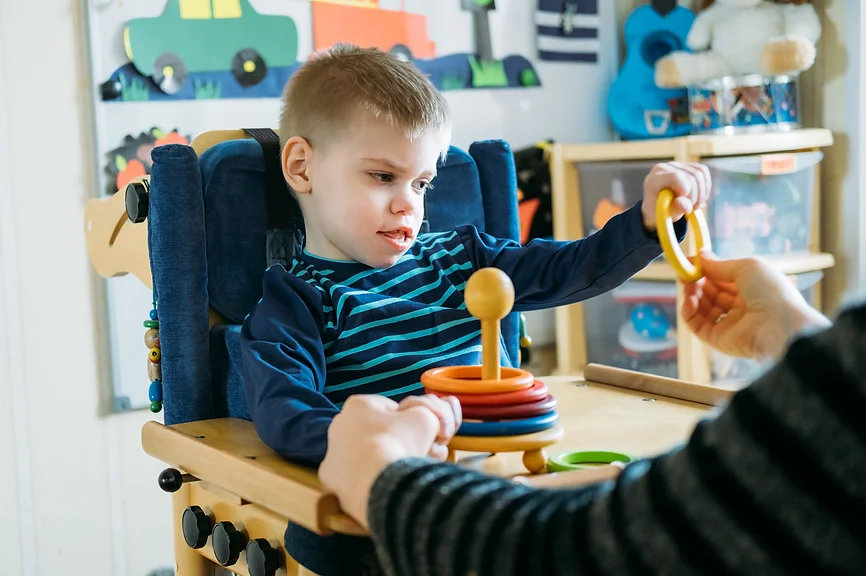-
Discrete Trial Training (DTT):
The therapy involves breaking down complex skills into smaller, more manageable steps, teaching each step systematically, and then combining the steps to form a complex behavior. Discrete trial teaching is particularly useful for teaching academic and self-care skills.
-
Naturalistic Teaching (NTA):
The therapy involves teaching skills in natural settings, such as during play or daily routines. Naturalistic teaching focuses on promoting social interactions, communication, and problem-solving skills. This approach is less structured than discrete trial teaching and is more focused on learning through natural interactions.
-
Pivotal Response Therapy (PRT):
The therapy focuses on teaching pivotal skills, such as motivation, self-management, and self-initiation, which can have a broad impact on other areas of development. Pivotal response training uses naturalistic teaching methods and is less structured than discrete trial teaching.
-
Early Start Denver Model (ESDM):
An early intervention program for children with or at risk for autism spectrum disorder (ASD) between the ages of 12 and 48 months. It is based on the principles of applied behavior analysis (ABA) and uses a naturalistic developmental approach to promote positive developmental outcomes. The ESDM focuses on building social communication, play, and cognitive skills and involves parent involvement and coaching to promote generalization of skills to the child’s natural environment.
-
Verbal Behavior Therapy (VB):
The therapy focuses on developing communication skills, including expressive language, receptive language, and social language. Verbal behavior therapy is based on the principles of operant conditioning and uses positive reinforcement to teach new communication skills.
What is Autism
Autism spectrum disorder (ASD) is a developmental & neurological disorder characterized by difficulties in social skills, communication (both verbal and nonverbal), and the presence of repetitive behaviors. It is a diverse spectrum, leading to varying degrees of impact on individuals. Autism typically emerges in early childhood and affects the way individuals interact with others and perceive the world around them.

ABA Therapy
Applied Behavior Analysis (ABA) is a type of therapy that centers on improving communication, language and socially significant behaviors primarily used to treat individuals with autism spectrum disorder (ASD) and other developmental disorders such as ADHD and Down Syndrome. ABA therapy is an evidence-based intervention that focuses on identifying the cause of a behavior and focuses on increasing deficits such as communication, language, social skills, play and leisure skills while decreasing challenging behaviors. In addition, ABA therapy focuses on implementing strategies that can be generalized to caregivers.

ABA Methodologies
Insurance we accept
We will work with your insurance company to verify your insurance benefits and outline all the services covered under your health insurance. Difficulties in determining your health insurance benefits and the potential cost of ABA services should not stand in the way of the care your child needs. Let us do the work for you.
Solutions to the Puzzle Behavioral Services will determine your benefits, obtain pre-approvals, negotiate rates, aim to establish single case agreements when needed. We use electronic billing where possible for convenience and we accept private pay.


